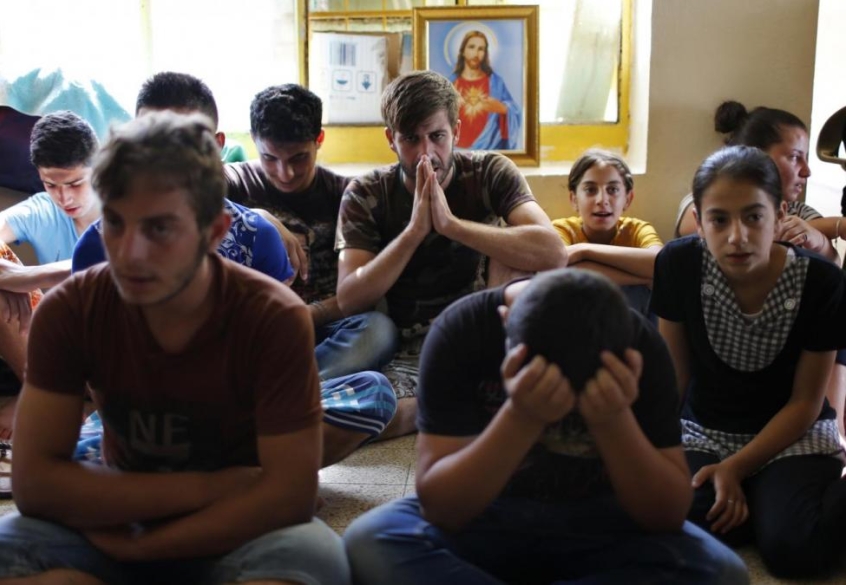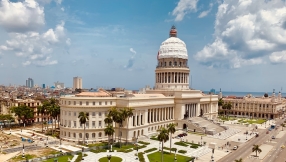
A resolution to protect religious minorities including Christians and Yazidis in Iraq following the expected defeat of ISIS has been passed in the European Parliament.
The European People's Party Group, the largest political group in the European Parliament, tabled this week a joint motion for a resolution in Iraq once the offensive to retake Mosul from Islamic State is completed.
The resolution passed on Thursday morning by an overwhelming majority, with 488 votes in favour, 11 against, and around 100 abstentions. Charlie Weimers of the Swedish Christian Democrats told Christian Today it was "now or never" for religious minorities in Iraq.
The motion highlighted ISIS' "draconian regime in Mosul", the jihadist group's last stronghold in Iraq. It noted that those who have managed to escape the city "report that people are starving and desperate to be liberated" and "strongly condemned" mass executions perpetrated by militants.
The motion also said the Nineveh Plain, Tal Afar and Sinjar regions have been "the ancestral homeland of Christians (Chaldeans/Syriacs/Assyrians), Yazidis, Sunni and Shia Arabs, Kurds, Shabak, Turkmen, Kaka'i, Sabaean-Mandeans, and others where they lived for centuries in a spirit of general pluralism, stability and communal cooperation despite periods of external violence and persecution, until the beginning of this century".
Before the Iraq invasion of 2003 there were more than 1.5 million Christians living in Iraq. There are now believed to be only around 200,000.
"The extinction of these minorities in the region will have a further destabilising effect," the resolution said.
The European Parliament in February recognised the atrocities committed by ISIS against religious minorities including Christians, Yazidis and Turkmen as genocide. Member states must ensure "the necessary security conditions should be ensured for all those who have been forced to leave their homeland or have been forcibly displaced, to make effective their right to return to their homelands as soon as possible", the motion continued.
Article 125 of the Iraqi constitution gives religious minorities the right to have their own province, and this was guaranteed by the Council of Ministers in January 2014. The motion urged member states to "give their practical and diplomatic support to a sustainable and inclusive post-conflict structure for the region, with particular reference to the possibility of an autonomous province including the Nineveh Plain, Sinjar and Tal Afar, to be politically presented by the indigenous peoples of the region".
Groups acting on behalf of religious minorities in Iraq have long called for a self-governed province to be created in the Nineveh Plain post-ISIS.
"The coming liberation of Mosul is... the defining moment when it comes to the future of Iraq's indigenous peoples," said Lars Adaktusson, who initiated the resolution.
"Now that Islamic State is on its way to being driven out of Mosul, it is indispensable that the EU, together with other countries, shows solidarity with minorities and, within the framework of Iraq's federal structure, formulates an action plan on the future of Christians, Yazidis and Turkmen.
"That means the creation of maximum regional autonomy in Northern Iraq for Christians – Chaldeans, Syriacs, Assyrians – Yazidis and Turkmen indigenous populations, and providing the necessary training support and security guarantees, including support for local security forces, in order for such an administration to be politically, socially and economically viable."
Though the motion is non-binding, there is precedent for the European Parliament to take action following the passing of such resolutions and the European Commission is obliged to respond at a later stage.
When the resolution branding ISIS' actions a genocide was passed earlier this year, an amendment to the motion called for the appointment of an EU special representative for the freedom of religion and belief. Although this, too, was non-binding, the Commissioner appointed someone to the position in May.
After today's vote, Adaktusson told Christian today he was "very happy" with the support showed in Parliament.
"The important issues the resolution is dealing with have been highlighted," he said. "We need on the European side to take responsibility and do what we can in order to stabilise the situation [in Iraq] and make it possible for refugees and IDPs to return to their homelands."
Though the resolution is non-binding, it will "mean a lot" to religious minorities in the Middle East, Adaktusson added.
"The Christian groups, Assyrians, Syriacs and Chaldeans, as well as Yazidis and Turkmen have been fighting for autonomy within the framework of the Iraqi Constitution for a long time. Nineveh was upgraded to a province just prior to the invasion of Islamic State in 2014, so this has been an issue for a long time for these groups," he said.
The passing of the resolution shows both political and moral support for persecuted minorities, he said.
"I also think it's necessary to underline that if we want to preserve the Christian heritage, if we want to keep the Christian tradition within this region, it's essential that these groups will be able to return, and that's not possible without international support."













